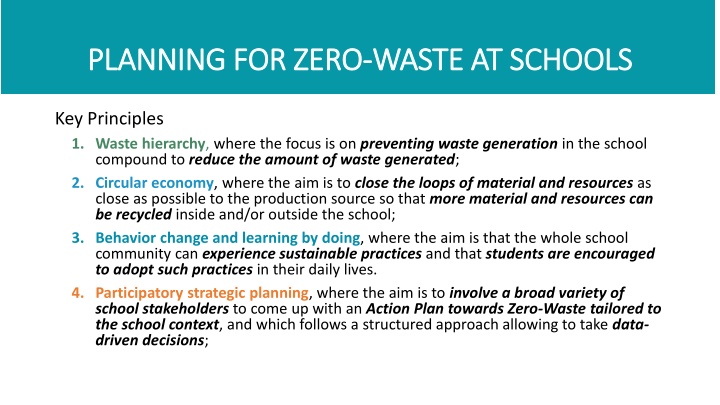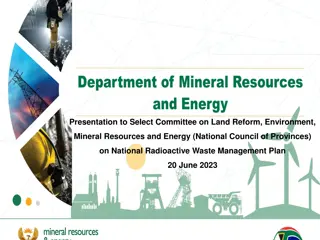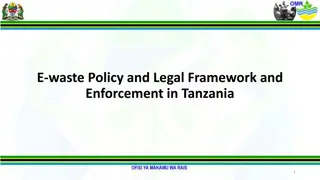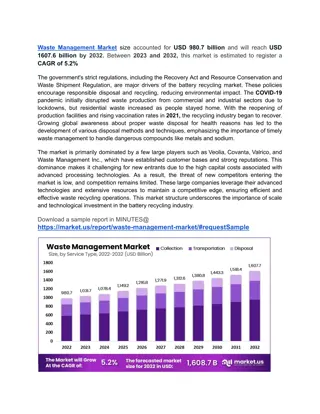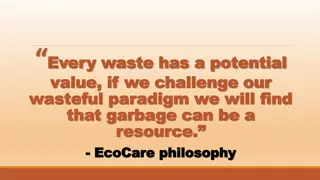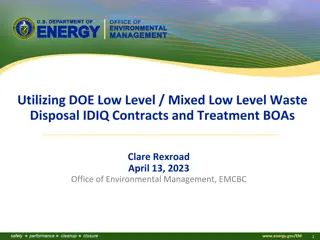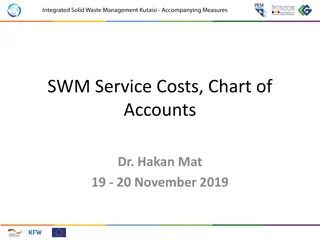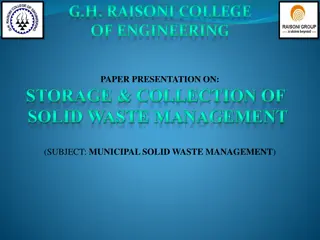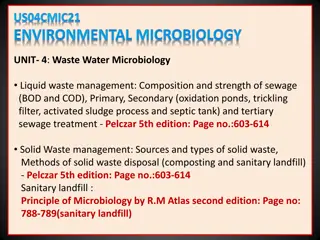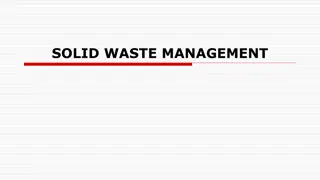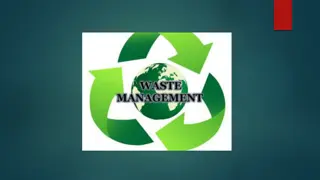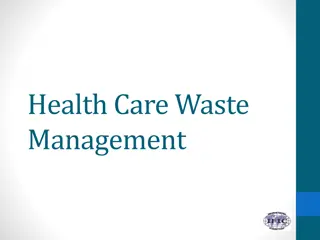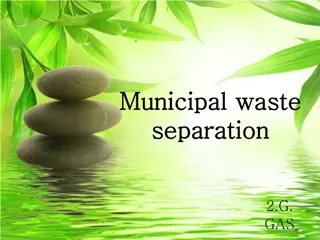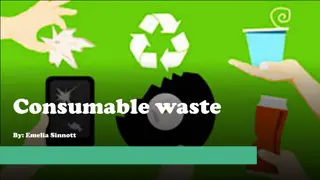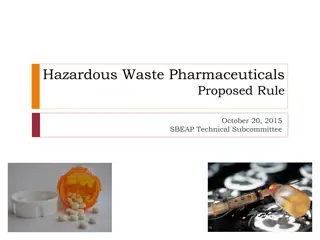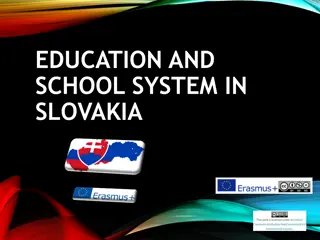Key Principles for Zero-Waste at Schools
Waste hierarchy, circular economy, behavior change, and participatory planning are vital for achieving zero-waste goals at schools. These principles focus on minimizing waste generation, promoting recycling, instilling sustainable practices, and involving stakeholders in strategic planning. Effective implementation can lead to a more sustainable school environment.
Uploaded on Mar 13, 2025 | 0 Views
Download Presentation

Please find below an Image/Link to download the presentation.
The content on the website is provided AS IS for your information and personal use only. It may not be sold, licensed, or shared on other websites without obtaining consent from the author.If you encounter any issues during the download, it is possible that the publisher has removed the file from their server.
You are allowed to download the files provided on this website for personal or commercial use, subject to the condition that they are used lawfully. All files are the property of their respective owners.
The content on the website is provided AS IS for your information and personal use only. It may not be sold, licensed, or shared on other websites without obtaining consent from the author.
E N D
Presentation Transcript
PLANNING FOR ZERO PLANNING FOR ZERO- -WASTE AT SCHOOLS WASTE AT SCHOOLS Key Principles 1. Waste hierarchy, where the focus is on preventing waste generation in the school compound to reduce the amount of waste generated; 2. Circular economy, where the aim is to close the loops of material and resources as close as possible to the production source so that more material and resources can be recycled inside and/or outside the school; 3. Behavior change and learning by doing, where the aim is that the whole school community can experience sustainable practices and that students are encouraged to adopt such practices in their daily lives. 4. Participatory strategic planning, where the aim is to involve a broad variety of school stakeholders to come up with an Action Plan towards Zero-Waste tailored to the school context, and which follows a structured approach allowing to take data- driven decisions;
1. WASTE HIERARCHY 1 Priority focus: Minimize waste generation! 2 Priority focus: Foster recycling practices 3 Priority focus: Improve disposal practices Wilson et al. 2015 Global Waste Management Outlook
2. CIRCULAR ECONOMY Linear Economy: Take Make Use - Discard Eawag/Sandec - MOOC
2. CIRCULAR ECONOMY Circular Economy: Let s look at Nature! Eawag/Sandec - MOOC
2. CIRCULAR ECONOMY Circular Economy: Make Use Recover Materials Eawag/Sandec - MOOC
2. CIRCULAR ECONOMY Ellen MacArthur Foundation (2013)
3. Behavior change and learning by doing Important: When we ask someone to do something differently, we ask them for a behavior change! The Whole-institution approach: An institution-wide process is organized in a manner that enables all stakeholders leadership, teachers, learners, administration to jointly develop a vision and plan to implement education for sustainable development in the whole institution (UNESCO, 2018) Key pedagogical approaches (UNESCO 2018): Learner-centered approach Action-oriented learning Transformative learning UNESCO, Shaping the Future We Want. 2014
4. PARTICIPATORY STRATEGIC PLANNING 1. Mobilize Assemble your team, agree on principles and process, confirm school commitment, identify stakeholders 2. Baseline Establish a baseline on the current situation, identify key issues and validate the baseline 3. Planning priorities and principles Set goals and targets, identify priorities, 4. Identify and evaluate options Identify and evaluate options, discuss and agree on options, revisit goals and targets 5. Develop an Action Plan Develop an Action Plan, identify roles, responsibilities and set targets 6. Implement the Action Plan Start the implementation process, communicate priorities, objectives and targets to all stakeholders 7. Monitor and evaluate Monitor and evaluate progress against targets set, identify opportunities for improvement, updates the Action Plan accordingly UN-Habitat, Planning steps - Towards Zero Waste at school. 2021
